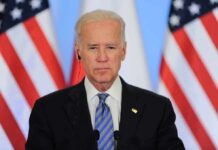
Hillary Clinton’s recent critique of the Trump administration’s pause in U.S. Cyber Command’s operations against Russia has raised eyebrows, especially considering her previous ties and dealings with the nation.
Key Insights
- Hillary Clinton criticized Pete Hegseth, implying his actions favored Putin.
- Critics recall Clinton’s past interactions with Russia, questioning her current stance.
- Hegseth’s action reportedly aimed to facilitate peace talks regarding the Ukraine conflict.
- The Uranium One deal and Clinton’s past diplomatic efforts have resurfaced in the debate.
Clinton’s Criticism and the Trump Administration’s Pause
Recently, Hillary Clinton voiced disapproval over Defense Secretary Pete Hegseth’s alleged order pausing Cyber Command’s attacks on Russia. Clinton suggested the decision was deferential to Vladimir Putin. Critics, however, have pointed to Clinton’s past dealings with Russia, questioning the consistency of her current criticisms.
Unnamed sources revealed Hegseth’s directive was part of broader efforts by the Trump administration to negotiate an end to the ongoing war in Ukraine. Despite this pause, other national security operations continued as planned.
Scrutiny of Clinton’s Historical Engagements with Russia
Critics have revisited Clinton’s involvement in the Uranium One deal, where the State Department, under her leadership, approved a Russian acquisition of a Canadian firm that controlled U.S. uranium assets. The fallout included questions about donations to the Clinton Foundation from individuals associated with the deal, and Bill Clinton’s $500,000 speaking fee from a Kremlin-linked bank.
Hegseth’s response included sharing a 2009 image of Clinton with Russian Foreign Minister Sergey Lavrov. This image served as a powerful reminder of her previous attempts to reset relations with Russia, efforts many perceive as inconsistent with her current criticisms.
Diplomatic Efforts and National Security
Secretary of State Marco Rubio defended the pause, highlighting the importance of diplomatic engagements with Russia as a pathway toward resolving conflicts like the one in Ukraine. Rubio emphasized that diplomatic negotiations often require pauses in military operations, a strategy not uncommon in international diplomacy.
This debate underscores the complex history and future of U.S.–Russia relations. While Clinton criticizes the pause as potentially yielding to Russia, others see it as a strategic move aimed at fostering peace. As this discourse unfolds, it highlights the continuing impact of past diplomatic endeavors on current geopolitical maneuvers.

























